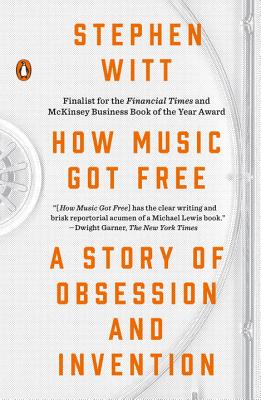Expedite your nonfiction book discovery process with Readara interviews, summaries and recommendations, Broaden your knowledge and gain insights from leading experts and scholars
In-depth, hour-long interviews with notable nonfiction authors, Gain new perspectives and ideas from the writer’s expertise and research, Valuable resource for readers and researchers
Optimize your book discovery process, Four-to eight-page summaries prepared by subject matter experts, Quickly review the book’s central messages and range of content
Books are handpicked covering a wide range of important categories and topics, Selected authors are subject experts, field professionals, or distinguished academics
Our editorial team includes books offering insights, unique views and researched-narratives in categories, Trade shows and book fairs, Book signings and in person author talks,Webinars and online events
Connect with editors and designers,Discover PR & marketing services providers, Source printers and related service providers

How Music Got Free: A Story of Obsession and Invention
Business & Economics > Industries - Entertainment
- Penguin Books
- Paperback
- 9780143109341
- 8.3 X 5.4 X 0.8 inches
- 0.5 pounds
- Business & Economics > Industries - Entertainment
- (Single Author) Asian American
- English
Readara.com
Book Description
One of Billboard's 100 Greatest Music Books of All Time
A New York Times Editors' Choice
ONE OF THE YEAR'S BEST BOOKS: The Washington Post - The Financial Times - Slate - The Atlantic - Time - Forbes
[How Music Got Free] has the clear writing and brisk reportorial acumen of a Michael Lewis book.--Dwight Garner, The New York Times
What happens when an entire generation commits the same crime?
How Music Got Free is a riveting story of obsession, music, crime, and money, featuring visionaries and criminals, moguls and tech-savvy teenagers. It's about the greatest pirate in history, the most powerful executive in the music business, a revolutionary invention and an illegal website four times the size of the iTunes Music Store.Journalist Stephen Witt traces the secret history of digital music piracy, from the German audio engineers who invented the mp3, to a North Carolina compact-disc manufacturing plant where factory worker Dell Glover leaked nearly two thousand albums over the course of a decade, to the high-rises of midtown Manhattan where music executive Doug Morris cornered the global market on rap, and, finally, into the darkest recesses of the Internet.
Through these interwoven narratives, Witt has written a thrilling book that depicts the moment in history when ordinary life became forever entwined with the world online--when, suddenly, all the music ever recorded was available for free. In the page-turning tradition of writers like Michael Lewis and Lawrence Wright, Witt's deeply reported first book introduces the unforgettable characters--inventors, executives, factory workers, and smugglers--who revolutionized an entire artform, and reveals for the first time the secret underworld of media pirates that transformed our digital lives.
An irresistible never-before-told story of greed, cunning, genius, and deceit, How Music Got Free isn't just a story of the music industry--it's a must-read history of the Internet itself.
Author Bio
Stephen Witt is a journalist, regular contributor to the New Yorker and the author of ‘How Music Got Free: The End of an Industry, the Turn of the Century, and the Patient Zero of Piracy’
Stephen was born in New Hampshire in 1979 and raised in the Midwest. He graduated from the University of Chicago with a degree in mathematics in 2001. He spent the next six years playing the stock market, working for hedge funds in Chicago and New York. Following a two-year stint in East Africa working in economic development, he graduated from Columbia University’s Graduate School of Journalism in 2011.
In ‘How Music Got Free’ published in 2015, Stephen Witt traces the secret history of digital music piracy, from the German audio engineers who invented the mp3, to a North Carolina compact-disc manufacturing plant where factory worker Dell Glover leaked nearly two thousand albums over the course of a decade, to the high-rises of midtown Manhattan where music executive Doug Morris cornered the global market on rap, and, finally, into the darkest recesses of the Internet.
The book was nominated for countless awards including the Financial Times and Mckinsey Business book of the year 2015 for which it made the shortlist.
He currently lives in Brooklyn, New York.
Source: Chartwell Speakers
Community reviews
No Community reviews




